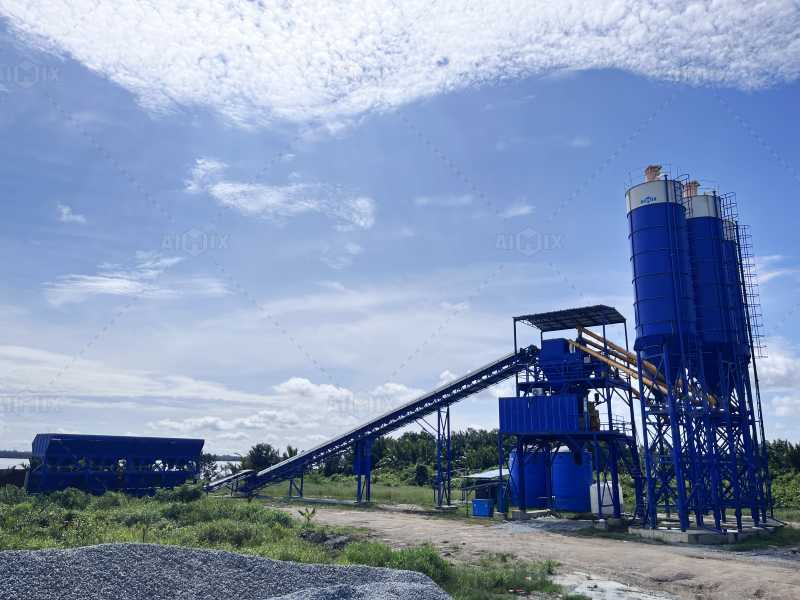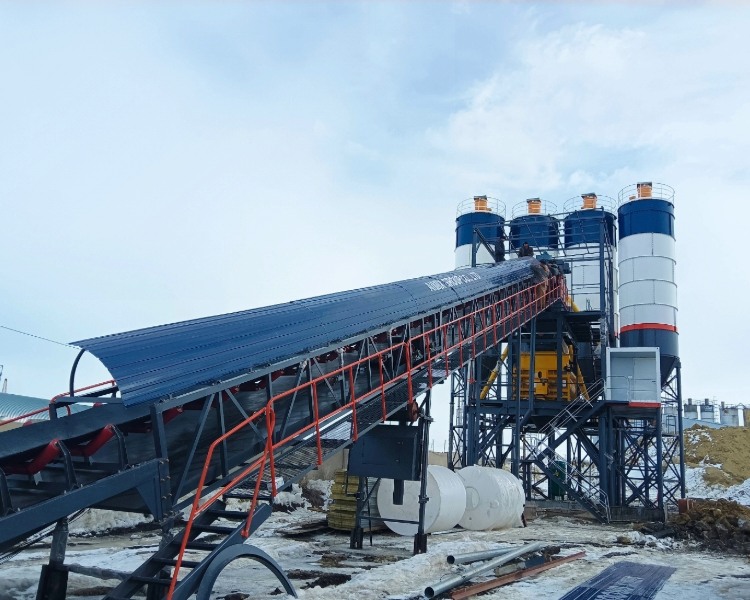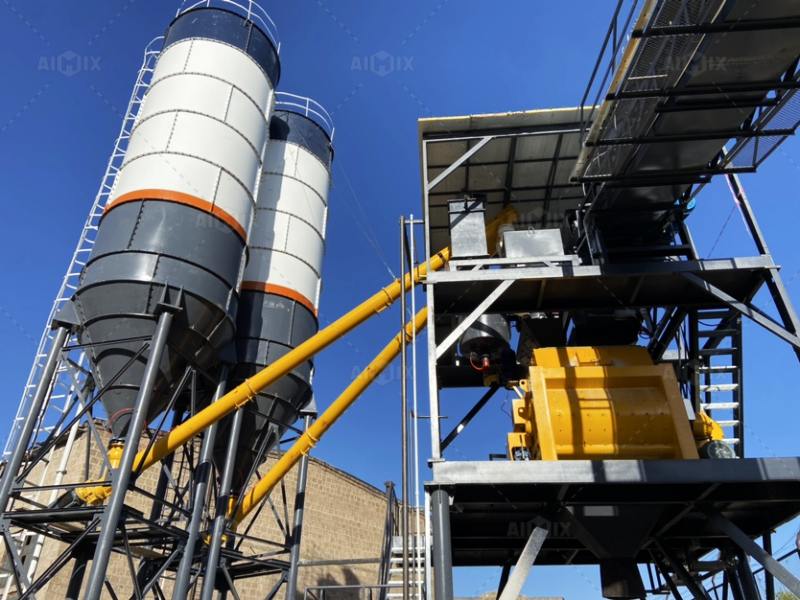Ready mix concrete (RMC) plants are at the heart of modern construction, ensuring that high-quality concrete is available on demand for projects ranging from residential developments to large-scale infrastructure. However, the true potential of an RMC plant can only be unlocked through effective operations and best practices. This article outlines proven strategies to enhance productivity, maintain product quality, and optimize your investment in an RMC plant. Along the way, we’ll touch on key considerations such as concrete batching plant for sale, concrete batching plant prices, and ready mix concrete plant cost.

Understanding Your RMC Plant
An RMC plant is essentially a type of concrete mixing plant that produces ready-to-use concrete by combining cement, aggregates, water, and admixtures in precise proportions. The efficiency of these plants is critical to a project’s success, and many companies search for a concrete batching plant for sale that meets their production needs while also fitting within their budget. Whether you are considering a stationary setup or a mobile unit, it’s important to understand that the ready mix concrete plant cost will vary based on capacity, automation level, and other features. Additionally, concrete batching plant prices serve as a useful benchmark for comparing various models on the market.
Best Practices for Operating an RMC Plant
Enhancing productivity at an RMC plant involves several operational best practices, each designed to streamline the production process, minimize downtime, and ensure consistent quality.
1. Invest in Comprehensive Training
Operator Training and Certification
A well-trained workforce is the backbone of any successful RMC operation. Regular training sessions for plant operators should focus on the proper handling of equipment, understanding the mixing process, and troubleshooting common issues. Operators who are familiar with the intricacies of the equipment can significantly reduce the risk of errors, ensuring that each batch of concrete meets the required standards.
Safety Protocols
Incorporate rigorous safety training into your routine. This not only protects your staff but also minimizes downtime caused by accidents or safety breaches. By maintaining a safe working environment, your plant operates more efficiently and reliably.
2. Implement a Robust Maintenance Schedule
Preventive Maintenance
Routine inspections and preventive maintenance are essential. Regular servicing of mechanical components such as mixers, conveyors, and dosing systems can prevent unexpected breakdowns. A well-maintained RMC plant will run more smoothly and produce high-quality concrete consistently.
Calibration and Quality Checks
Regularly calibrate the equipment to ensure accurate measurements of ingredients. Automated systems often include sensors and control systems that require periodic calibration to maintain precision. Quality checks at every stage of the mixing process help in maintaining consistency in the final product.

3. Leverage Technology and Automation
Automation and Control Systems
Modern RMC plants are equipped with advanced control systems that automate the batching process. By utilizing real-time monitoring and control software, operators can adjust the mix proportions quickly and efficiently. Automation reduces human error and ensures that each batch of concrete adheres to the desired specifications.
Data Analytics
Incorporating data analytics can provide insights into production efficiency, material consumption, and equipment performance. By analyzing operational data, you can identify areas for improvement and optimize the production process to enhance overall productivity.
4. Optimize Material Management
Quality of Raw Materials
The quality of raw materials such as cement, aggregates, and water plays a crucial role in the final output. Establish reliable supply chains and conduct regular quality tests on your materials to ensure consistency. High-quality inputs lead to higher quality concrete, reducing the need for costly rework.
Efficient Inventory Control
Implement an inventory management system that tracks the usage of raw materials in real time. This helps in planning and reduces wastage, ensuring that you only purchase what is necessary. Effective material management can also contribute to reducing the ready mix concrete plant cost over time.
5. Monitor and Evaluate Production Performance
Key Performance Indicators (KPIs)
Establish and monitor KPIs such as production output, downtime, material wastage, and energy consumption. These indicators provide a clear picture of the plant’s performance and highlight areas that require attention.
Continuous Improvement Initiatives
Adopt a continuous improvement approach by regularly reviewing operational procedures and implementing changes based on feedback and performance data. Small, incremental changes can lead to significant productivity gains over time.
6. Evaluate and Upgrade Equipment Strategically
Staying Current with Technology
Technology evolves rapidly, and staying updated with the latest advancements can offer a competitive edge. When considering a concrete batching plant for sale, evaluate models that offer modern features like remote diagnostics, IoT integration, and energy-efficient designs. These upgrades can reduce long-term operational costs and improve overall plant efficiency.
Cost-Benefit Analysis
When assessing new equipment, consider not just the concrete batching plant prices but also the potential savings in labor, maintenance, and material efficiency. Although the ready mix concrete plant cost may be higher for advanced models, the long-term benefits often justify the initial investment.

Optimizing Your Investment in an RMC Plant
The ultimate goal of implementing these best practices is to maximize the return on investment for your RMC plant. While the ready mix concrete plant cost and concrete batching plant prices are important factors, operational efficiency and quality control determine the overall profitability and reliability of the plant.
Cost Management
By following best practices in operator training, maintenance, and material management, you can reduce operational costs. Efficient energy use, minimal downtime, and reduced wastage all contribute to a lower cost per unit of concrete produced.
Enhanced Quality and Consistency
High-quality concrete is essential for the success of any construction project. A well-operated RMC plant ensures that the concrete consistently meets the required standards, thereby enhancing the reputation of your business and reducing costly rework or structural issues later on.
Scalability and Flexibility
A well-run plant is also more adaptable to changes in demand. Whether you’re scaling up production for a large project or adjusting operations to cater to market fluctuations, maintaining high productivity levels ensures that you can meet client needs effectively.
Conclusion
Enhancing productivity at an RMC plant involves a combination of best practices across training, maintenance, technology adoption, and material management. By investing in these areas, operators can significantly improve the efficiency and quality of concrete production, ultimately reducing the ready mix concrete plant cost over time. Whether you’re evaluating concrete batching plant prices or searching for a concrete batching plant for sale, remember that the long-term success of your operation depends on the continuous optimization of your processes. Adopting these strategies will not only help you stay competitive in the construction industry but also pave the way for sustainable growth and operational excellence.